Israel Asks Chad To Curb Iran, Hezbollah Clout In Sahel
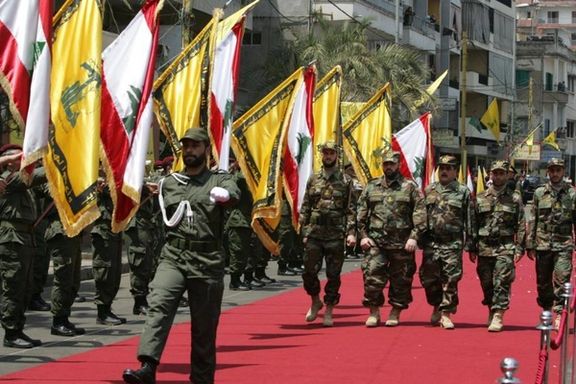
Israel asked visiting Chadian President Mahamat Deby on Thursday to reduce the influence of Iran and Hezbollah in Africa’s Sahel region.

Israel asked visiting Chadian President Mahamat Deby on Thursday to reduce the influence of Iran and Hezbollah in Africa’s Sahel region.
The trip to open Chad’s embassy in Israel, included a rare stop at the Mossad intelligence headquarters - a sign that bilateral ties re-established five years ago have national security importance.
"This is a great day, an historic day for Chad and for Israel, too," Deby said in a videotape of the inauguration.
"I offer a prayer to God that, with the formal opening of our embassy here, relations between our countries will bring value to both peoples, yours and ours."
Standing beside the Chadian president, Netanyahu said: "We are strengthening our friendship, and our common interest in pursuing peace, security and prosperity."
Meeting Deby earlier, Israeli Defense Minister Yoav Gallant "raised the importance of narrowing the influence of Iran and Hezbollah in the Sahel region, as a key to ensuring stability, and thwarting the export of terrorism," Gallant's office said.
There was no immediate comment from the government in Chad or Tehran. In Beirut, Hezbollah's media office declined comment.
Muslim-majority Chad has not publicly spoken of any significant presence by Iran or Hezbollah in the Sahel, parts of which are contending with Sunni Islamist insurgencies.
Having returned to power last month, Netanyahu has vowed to expand the circle of Arab or Muslim countries that recognize Israel - even as he contends with a deepening and violent stalemate with the Palestinians.
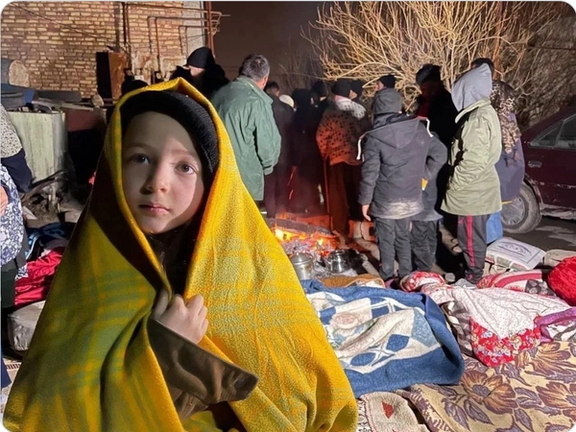
The judiciary blocked the bank account of popular footballer Karim Bagheri after he urged Iranians to make donations to the victims of Saturday’s earthquake in Iran.
In an Instagram post Tuesday, Bagheri, a former national team player, announced details of a bank account he had set up for collecting donations for the victims of the magnitude 5.9 earthquake in the city of Khoy which left three dead and injured hundreds. Tens of aftershocks have been registered since Saturday’s earthquake.
Meanwhile thousands of people spent their fifth night in sub-zero temperatures without adequate shelter and supplies as the government has failed to provide sufficient aid.
Mizan news, the news agency of the judiciary, said Wednesday the account was blocked because he had not requested a permit. The judiciary also said celebrities’ charity drives in the past had “resulted in crimes such as fraud”.
The judiciary also said it had banned collection of donations by individuals upon a request by the Red Crescent society. The ban effectively prevents citizens, particularly celebrities known to oppose the regime, and independent charities from collecting any donations during earthquakes and other natural crises.
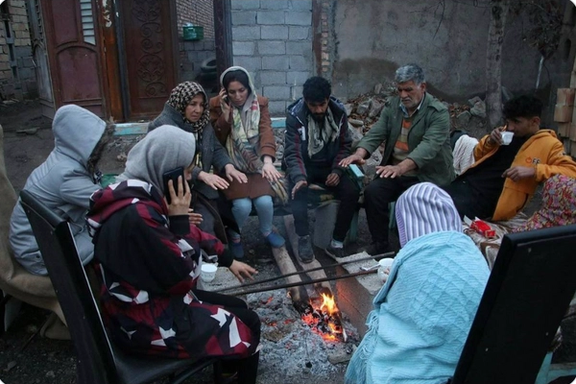
The only possible explanation is the regime’s disdain for any public initiative outside its structures, which could encourage independent activism in society.
Thousands in Khoy, a city of 200,000, and its surrounding villages who have lost their homes are still sleeping outside in the freezing cold for the fear of further tremors, and power is still out in many places. Government’s earthquake assistance is scarce and there are very long queues where necessities such as tents are distributed.
The government has dispatched security forces to the area in big numbers “to maintain order”. Locals say security forces have blocked the roads leading to Khoy and prevented popular donations from reaching the victims.
Those who take videos are arrested, locals say. A citizen-journalist said in a video taken secretly which he sent to Iran International, that the Basij militia of the Revolutionary Guards (IRGC) treat the victims harshly and do not allow anyone to take videos.
First Vice President Mohammad Mokhber admitted Wednesday, during a visit to the quake-hit Khoy, that the aid sent to the area in the past few days has been far from meeting the immediate demands of the victims.
Mokhber, however, cast the blame on the Red Crescent Society for the shortcomings and accused the secretary general of the Red Crescent, Dr Yaghoub Soleimani, who was accompanying him for “falsely reporting that the conditions in the quake-hit area were satisfactory.
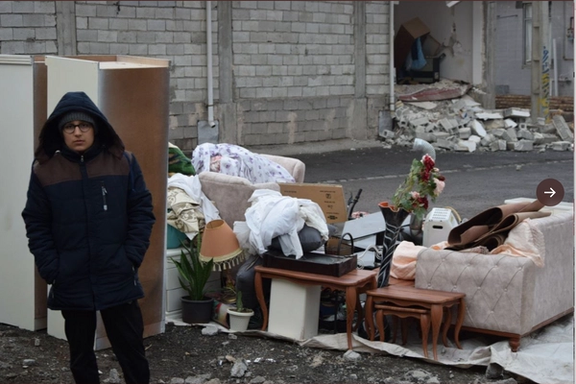
“People say they sleep in the cold [outside] but you claim you have distributed tents. We thought the situation was good based on your report. It’s several days since the quake and some people have neither bread nor water or tents. You should have told us to provide all the necessary items,” Mokhber told Soleimani in front of cameras.
The Iranian Red Crescent Society is only nominally a non-governmental organization. The society is tightly controlled by the government and its head is an appointee of the president.
Announcing the deactivation of his account by the authorities, in another post Wednesday Bagheri apologized to his fans whose attempt to donate had failed. “I hoped substantial donations could be given to our people, but God is my witness that my hands are tied.”
Bagheri had successfully launched a charity drive to help victims of another earthquake in East Azarbaijan Province in in 2012. At the time he said he had handed over the donations to the authorities to use for rebuilding houses destroyed by the quake.
The government similarly blocked the account of former soccer legend Ali Daei in November 2017 when he requested donations to help the quake-hit people of Kermanshah and personally went to the area to deliver the aid consisting of 15 trucks of clothing, food, and blankets. Daei had also raised $1.7 million in cash.
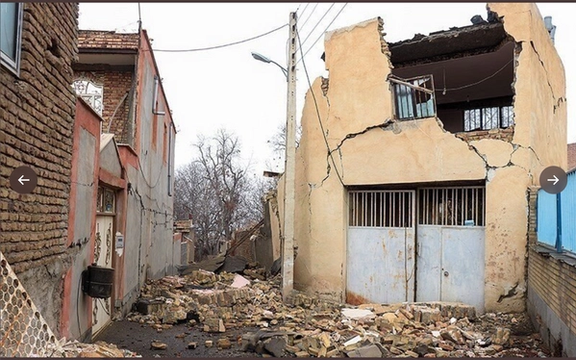
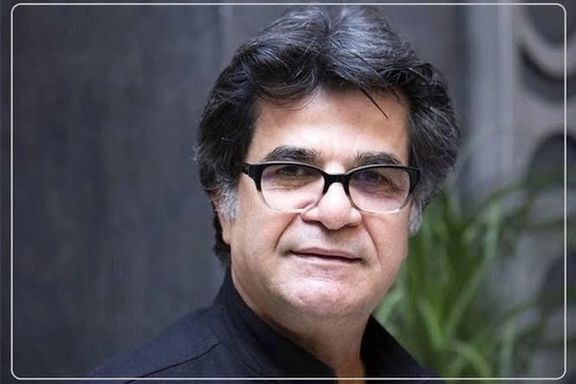
Famous Iranian filmmaker Jafar Panahi has gone on a hunger strike to protest his detention in Tehran while his sentence has been declared void by the country’s Supreme Court.
Tahereh Saeidi, Panahi’s wife, announced his hunger strike Wednesday publishing Panahi’s statement on her Instagram sent from the notorious Evin Prison where most political prisoners are kept.
“I firmly declare that in protest against the illegal and inhumane behavior of the judicial and security apparatus and their hostage-taking, I have started a hunger strike since the morning of February 1… I will refuse to eat and drink any food and take medicine until the time of my release,” reads his statement.
The director was imprisoned in early July after going to Evin prison to enquire about the whereabouts of his other renowned filmmakers Mohammad Rasoulof and Mostafa Al-Ahmad following their arrest a few days earlier.
Later, it was announced the Iranian authorities had decided to reactivate a six-year sentence originally meted out to Panahi in 2010 alongside a 20-year filmmaking and travel ban.
The charges were connected to his attendance at the funeral of a student who was shot dead in 2009 during the Green Movement protests and his later attempt to shoot a feature about the uprising.
In October, Iran’s Supreme Court announced that Panahi’s sentence had passed the country’s ten-year statute of limitations. Accordingly, this should have granted Panahi immediate release, but he is still behind bars.

The US military says it played a role in an operation last month that intercepted an Iranian shipment of weapons to Yemen’s Houthi rebels.
The US military announced Wednesday that the US Navy assisted the French military in seizing thousands of assault rifles and half a million rounds of ammunition that were being transferred from Iran to Yemen in January.
US Central Command confirmed over 3,000 assault rifles, 578,000 rounds of ammunition, and 23 anti-tank guided missiles were confiscated.
It also added that the seizure is “one of four significant illicit cargo interdictions over the past two months,” which has prevented the transfer of more than 5,000 weapons and 1.6 million rounds of ammo to Yemen. Another seizure of arms was announced earlier in January.
In a separate release on Wednesday, CENTCOM also announced that Yemeni security forces recently seized 100 unmanned aerial vehicle engines “bound for Houthi militants,” but it did not specify when the seizure happened.
The seizure came just five days after CENTCOM announced that the US had intercepted a shipment of 2,116 Iranian assault rifles heading for Yemen.
Yemen has been the scene of a civil war since 2015. Tehran has supported the Houthis, a rebel group that overthrew the government at the beginning of the war, against a Saudi-led coalition. The war has caused widespread poverty and left tens of thousands of civilian casualties, creating one of the world’s worst humanitarian crises as aid workers say.
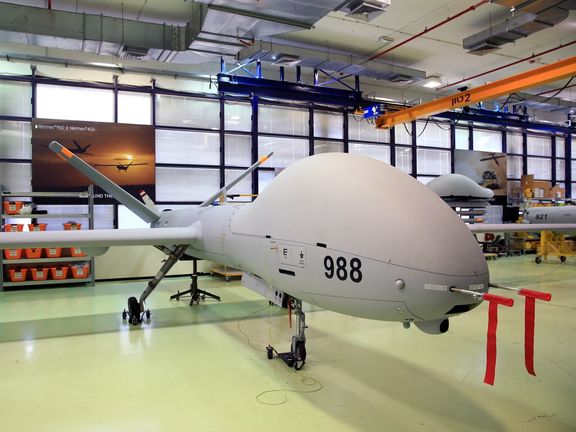
Large Israeli drones use gravity bombs of up to one ton that produce no noise or smoke, making them hard for enemies to anticipate or evade, the military says.
After more than two decades of secrecy, Israel in July went public with the existence of armed drones in its arsenal.
Briefing Reuters, a senior Israeli military officer said the armed drone fleet includes the passenger plane-sized Heron TP, made by state-owned Israel Aerospace Industries Ltd ISRAI.UK, and Elbit Systems Ltd's ESLT.TA smaller Hermes.
The former, the officer said, "is the heaviest drone that the IDF (Israel Defense Forces) has, which can carry munitions, with an effective payload of around a ton".
Such drones can be potentially used against hardened Iranian nuclear facilities in case Israel decides to carry out its threat of taking action to prevent Iran from developing nuclear bombs.
The Israeli manufacturers do not publicize the armed capabilities of the drones, under what industry sources have described as a Defense Ministry secrecy policy.
The officer, not identified in line with military requirements given the sensitivity of the subject, said any sales of bomb-capable drones would be government-to-government, negating the need for publicity.
All the drone munitions are Israeli-made, the officer said, and "come down in free-fall, and can reach the speed of sound".
Such bombs would not have propulsion systems that generate the tell-tale noise and smoke of fuel afterburners.
The officer declined to give further details on the munitions, saying only that, by design, when an armed drone attacks "no one will hear it, no one will see it coming".
This would assume enough altitude so that the drones' propeller engines cannot be clearly heard on the ground.
With Reporting by Reuters
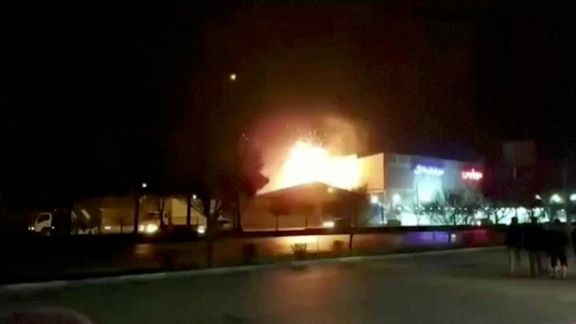
Iran has blamed Israel for a drone attack on a military factory in the central city of Esfahan, vowing revenge for the latest episode in a long-running covert war.
The attack on midnight, January 28 was filmed by the city’s residents showing explosions at a weapons development facility that is said to be involved in missile technology and munitions production.
The drone strike was yet another episode exposing Iran’s weaknesses in a covert war with Israel and a public embarrassment for its military and intelligence apparatus that have not been able to protect vital targets hundreds of kilometers inside Iran.
The attack came amid tension between Iran and the West over Tehran's nuclear activity and its supply of arms - including long-range "suicide drones" - for Russia's war in Ukraine, as well as months of antigovernment demonstrations at home.
In a letter to the UN chief, Iran's UN envoy, Amir Saeid Iravani, said "primary investigation suggested Israel was responsible" for Saturday night's attack, which Tehran had said caused no casualties or serious damage.
"Iran reserves its legitimate and inherent right to defend its national security and firmly respond to any threat or wrongdoing of the Zionist regime (Israel) wherever and whenever it deems necessary," Iravani said in the letter.
"This action undertaken by the Zionist regime (Israel) goes against international law."
Arch-foe Israel has long said it is willing to strike Iranian targets if diplomacy fails to curb Tehran's nuclear or missile programs but does not comment on specific incidents.
Many see the latest attack as a warning by Israel after years of threats that it will not tolerate a nuclear Iran.
Talks between Iran and world powers to revive a 2015 nuclear deal have stalled since September. The negotiations initiated by the Biden Administration in April 2021 lasted 18 months and failed to produce an agreement. In the meantime, Iran enriched enough uranium for up to four nuclear bombs and sharply reduced monitoring access for the UN nuclear watchdog, the IAEA.
Iran has accused Israel in the past of planning attacks using agents inside Iranian territory.
On Wednesday a semi-official website said "equipment" used in the drone attack on the Ministry of Defense complex was procured by Kurdish groups based in Iraqi Kurdistan region.
Nour News Agency, affiliated with the Iranian Supreme National Security Council (SNSC), claimed that parts of a micro aerial vehicle and explosive materials were ordered by a foreign intelligence service and smuggled into Iran from the Kurdistan region through difficult mountain passes and were handed to an intermediary in a border city in the northwestern part of the country.
The report added that the drone parts and explosives were then assembled at a modern workshop by a group of specialists and were used in the attack.
In July, Tehran claimed it had arrested a sabotage team of Kurdish militants working for Israel who planned to blow up a "sensitive" defense industry center in Esfahan.
Iran has become more isolated in the world after the break in nuclear talks and international reaction to its deadly crackdown on popular protests. The supply of drones to Russia has also soured already weak relations with Europe.
Several nuclear sites are located in Isfahan province, including Natanz, the centerpiece of Iran’s uranium enrichment program, which Iran accuses Israel of sabotaging in 2020 and 2021. There have been a number of explosions and fires around Iranian military, nuclear and industrial sites since July 2020.